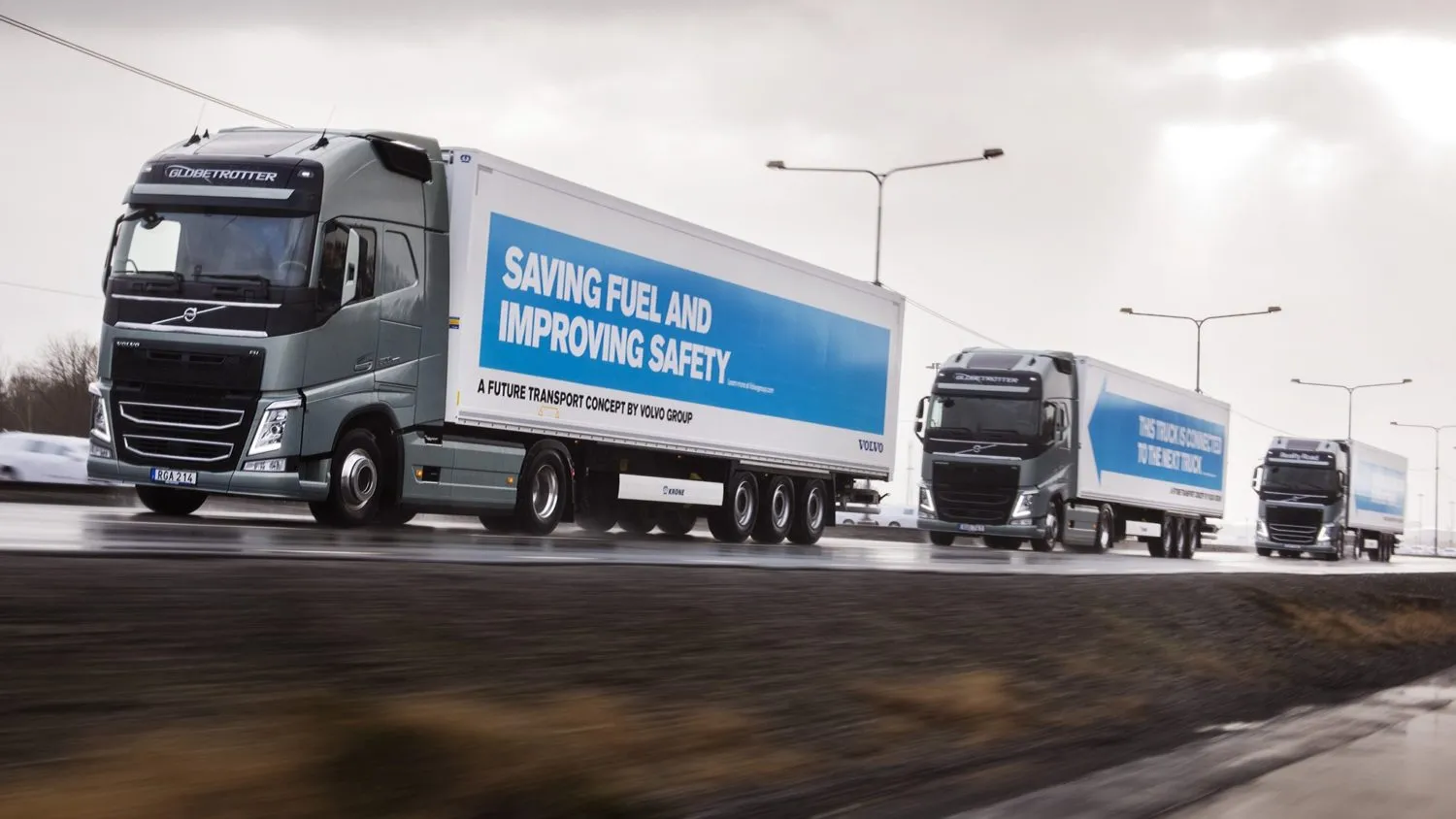
Are Driverless Lorries the way forward?
Government Ministers have recently announced that driverless lorries are to be trialled on British motorways in a campaign costing £8m.
Over the coming months, fleets of driverless lorries, which accelerate and brake at the same time through wireless communication will be trialled on British roads after a contract was awarded to the Transport Research Laboratory (TRL).

Source: Transport Research Laboratory
Up to three lorries will travel in automated convoys, with acceleration and braking controlled by a driver in the lead vehicle. The initiative is thought to allow the lorries to drive closer together than would be possible with human drivers.
The trial is designed to test whether lorries driving close together could reduce air resistance for the following vehicles, as the lead vehicle pushes the air of out of the way.
It is thought that trailing vehicles may be able to react more quickly to the lead lorry braking than a human would be capable of, although human drivers will still be solely responsible for steering the lorries in the convoy.
The technology has already been trialled successfully in other nations such as the USA and Japan, but haulage experts around the country are unconvinced that driverless lorries will be suited to the UK’s congested motorways.
Some industry experts have already criticised the initiative with questions such as “What happens if a car tries to squeeze between the lorries?” and “Will the convoy block motorists trying to leave or enter the motorway.” The TRL has responded to the queries by stating that its current strategy to deal with any traffic issues is to break up the convoy and let the human drivers take control of the vehicle.
Commenting on behalf of the Road Haulage Association, Rod McKenzie said “The haulage industry is increasingly IT led and we embrace technology, but not at the expense of safety or practicality. The experts have it all to prove as far as we are concerned. All road users – not just transport operators have to be happy with this proposal.”
Chris Lawlor, Lead Driver Consultant at Route4 Solutions said “Whilst Route4 Solutions may be accused of being bias as our business involves recruiting temporary drivers, we do fear for the safety and practicalities of having vehicles operated by wireless systems. At the end of the day if this initiative means that we still need drivers behind the wheel, why are we wasting time and money on this initiative?”
Whilst nobody can predict whether driverless lorries will be a success or not, one thing for certain is that Route4 Solutions along with other haulage industry experts will be keen to await the results of the trial and see how it will change the landscape of driver recruitment going forward.